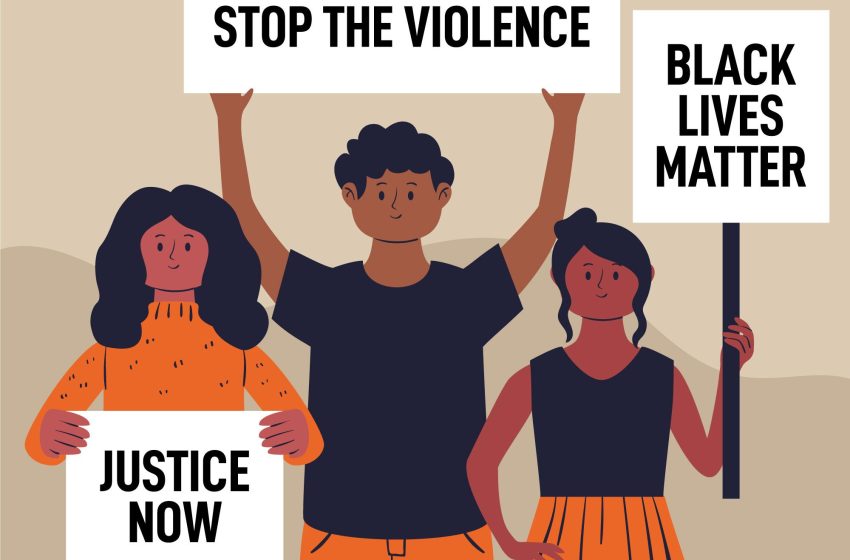The Lasting Legacy: Impact on African Americans and the Fight for Equality

Understanding the impact of systemic racism and segregation on African American communities is essential to addressing ongoing disparities and advocating for social justice. This article explores the historical and contemporary effects of these challenges, as well as the resistance and activism that have shaped the fight for equality.
Historical Context: Impact of Systemic Racism
Systemic racism has profoundly affected African American communities throughout American history, perpetuating social, economic, and political inequalities.
Overview of Systemic Racism
Systemic racism refers to the policies, practices, and norms that perpetuate racial inequality, affecting areas such as education, employment, housing, and criminal justice. From slavery to the Jim Crow era and beyond, African Americans have faced systemic barriers that have limited their opportunities and rights.
Data on Racial Disparities
Historical data reveals significant disparities in education, employment, and wealth accumulation between African Americans and whites, reflecting the enduring impact of systemic racism. For example, despite gains made during the Civil Rights Movement, African Americans continue to experience higher rates of unemployment and poverty compared to their white counterparts.
Examples of Discriminatory Policies
Examples include Jim Crow laws, which enforced racial segregation in public facilities, schools, and housing, perpetuating racial divisions and limiting opportunities for African Americans. Additionally, redlining practices systematically denied African Americans access to housing loans and affordable housing in certain neighborhoods, contributing to wealth disparities that persist today.
Segregation and Its Effects on African American Communities
Segregation laws and practices further exacerbated racial inequalities, creating separate and unequal living conditions for African Americans.
Explanation of Segregation Laws
Segregation laws enforced racial segregation in public facilities, schools, and housing, perpetuating racial divisions and limiting opportunities for African Americans. These laws were designed to maintain white supremacy and restrict African Americans’ social and economic mobility.
Data on Socio-Economic Disparities
African Americans were often relegated to segregated, under-resourced neighborhoods with limited access to quality education, healthcare, and employment opportunities. This led to significant socio-economic disparities that continue to affect African American communities today.
Case Studies Illustrating Impact
Case studies, such as the Tulsa Race Massacre of 1921 and the impact of urban renewal projects in the mid-20th century, highlight how segregation and discriminatory policies devastated African American communities. The destruction of thriving African American business districts and displacement of African American families further widened the wealth gap and perpetuated economic inequality.
Economic Inequality: Challenges and Data
African Americans face persistent economic disparities, resulting in unequal access to economic opportunities and wealth accumulation.
Analysis of Economic Disparities
Data shows disparities in income levels, wealth accumulation, and access to business opportunities between African Americans and whites. According to the Economic Policy Institute, the median white household has 10 times the wealth of the median Black household, a gap that has widened over the past several decades.
Data on Income Inequality
Historical and contemporary data illustrate the wage gap and employment discrimination faced by African Americans, hindering economic advancement. African Americans are more likely to be employed in lower-paying jobs with fewer benefits and less job security compared to their white counterparts.
Examples of Systemic Barriers
Examples include barriers to accessing small business loans, discriminatory hiring practices, and disparities in economic development initiatives. The lack of access to capital and business networks limits African American entrepreneurship and economic growth.
Health Disparities and Access to Healthcare
Health disparities continue to affect African Americans, leading to disparities in life expectancy and health outcomes.
Overview of Health Disparities
African Americans experience higher rates of chronic diseases, infant mortality, and lower life expectancy compared to their white counterparts. These disparities are rooted in a complex interplay of socio-economic factors, access to healthcare, and systemic racism.
Data on Access to Healthcare
Data shows disparities in access to healthcare, insurance coverage, and quality of care, contributing to poorer health outcomes for African Americans. According to the Centers for Disease Control and Prevention (CDC), African Americans are less likely to have health insurance and more likely to face barriers to accessing medical services.
Historical and Contemporary Factors
Historical factors, such as the Tuskegee Syphilis Study, and contemporary issues, such as healthcare access during the COVID-19 pandemic, highlight ongoing health disparities. The mistrust of the medical system due to historical abuses continues to affect healthcare-seeking behaviors among African Americans.
Education and Achievement Gap
The education achievement gap persists, impacting opportunities and economic mobility for African American students.
Analysis of the Achievement Gap
Data shows disparities in educational attainment, graduation rates, and academic achievement between African American students and their white peers. African American students are more likely to attend underfunded schools with fewer resources and higher teacher turnover rates.
Data on Disparities in Educational Resources
Historical and current data illustrate disparities in school funding, resources, and disciplinary practices, perpetuating the achievement gap. Discriminatory policies, such as the segregation of schools and unequal allocation of resources, have contributed to disparities in educational opportunities for African American students.
Case Studies of Educational Policies
Case studies, such as Brown v. Board of Education and the impact of desegregation efforts, highlight the fight for educational equality and the ongoing challenges. Despite legal victories, many schools remain segregated by race and socio-economic status, impacting the quality of education for African American students.
Criminal Justice System and Mass Incarceration
Racial disparities in the criminal justice system contribute to mass incarceration and disproportionate sentencing of African Americans.
Examination of Racial Disparities
African Americans are disproportionately represented in the criminal justice system, facing higher arrest rates, harsher sentencing, and systemic biases. According to the NAACP, African Americans are incarcerated at more than five times the rate of whites.
Data on Incarceration Rates
Data reveals disparities in incarceration rates and the impact of policies, such as the War on Drugs, on African American communities. The over-policing of African American neighborhoods and racial profiling contribute to the disproportionate incarceration of African Americans.
Discussion on Mass Incarceration
The impact of mass incarceration on families, communities, and economic opportunities for African Americans underscores the need for criminal justice reform. Mass incarceration perpetuates cycles of poverty and inequality, making it difficult for individuals to reintegrate into society and achieve economic stability.
Resistance and Activism in the Fight for Equality
African Americans have a long history of resistance and activism in the fight against racism and for civil rights.
Overview of Civil Rights Activism
Profiles of key figures, such as Martin Luther King Jr., Rosa Parks, and Malcolm X, highlight their contributions to the Civil Rights Movement and the fight for equality. These leaders and activists organized marches, sit-ins, and boycotts to challenge segregation and demand equal rights under the law.
Data on Impact of Activism
Data shows how civil rights activism led to legislative changes, including the Civil Rights Act of 1964 and the Voting Rights Act of 1965, advancing equality and political empowerment for African Americans. The activism of grassroots organizations and community leaders played a crucial role in mobilizing support and pressuring policymakers to enact change.
Profiles of Activist Organizations
Profiles of organizations, such as the NAACP, Student Nonviolent Coordinating Committee (SNCC), and Black Lives Matter, illustrate their role in mobilizing communities and advocating for social justice. These organizations continue to fight against racial injustice, police brutality, and systemic racism in various forms.
Contemporary Challenges and Struggles
Despite progress, African American communities continue to face modern-day challenges and struggles for equality.
Discussion on Modern-Day Challenges
Challenges include police brutality, voter suppression, systemic racism in healthcare and education, and economic disparities. African Americans are disproportionately affected by these issues, highlighting the ongoing struggle for racial justice and equality.
Data on Current Issues
Data highlights disparities in COVID-19 impacts, environmental justice, and ongoing struggles for voting rights and police reform. These issues underscore the need for continued activism and advocacy to address systemic racism and promote equity in society.
Analysis of Ongoing Activism
Black Lives Matter and other movements illustrate ongoing activism and resistance efforts to address these contemporary challenges. Activists and community leaders continue to organize protests, advocate for policy changes, and promote community empowerment to achieve racial justice and equality.
Conclusion
The impact of systemic racism and segregation on African Americans has been profound, perpetuating disparities in education, healthcare, economic opportunities, and criminal justice. Despite these challenges, African American communities have a rich history of resistance and activism, fighting for justice, equality, and civil rights. As we reflect on their legacy and ongoing struggles, it is clear that the fight for equality is far from over. By understanding these issues and supporting ongoing activism, we can work towards a more just and equitable society for all.
In summary, the lasting legacy of systemic racism and segregation on African Americans underscores the need for continued activism and efforts to dismantle barriers to equality and justice.

